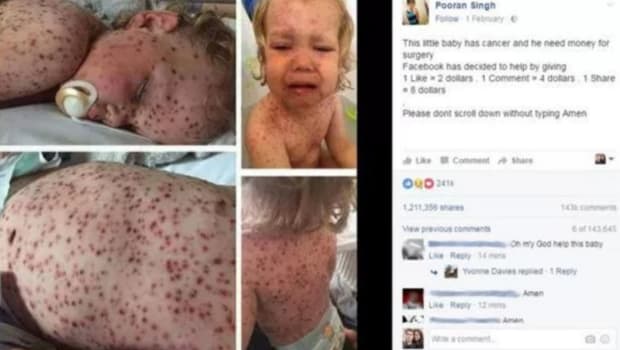
Take caution: Facebook scammers are continuing to tug on users’ heartstrings.
How often do you come across a viral Facebook post that promises to aid a sick individual—often a child—by accumulating likes and shares? “Every thumbs up will raise $1 for this kid’s medical treatment; or “Facebook will donate X amount of dollars to pay for this child’s surgery.” We’ve all seen them. And although some may question their legitimacy, many of you end up liking the post assuming there’s no harm; however, you might want to think twice before you click.
Many of these posts are used in “like-farming” scams that could jeopardize users’ personal information. According to the Better Business Bureau, the scammers will use these posts, usually accompanied by stolen photos, to generate a great deal of activity, be it in likes, comments, or shares. Once they’ve accumulated high numbers, the Like-Farmers will clear the page and replace it with some kind of product or service that’s for sale. But it doesn’t end there.
“[The scammers] may also sell the page and information that was collected from the ‘likes’ with a more direct threat of gaining access in an attempt to gather credit card numbers that may be stored for certain Facebook apps, passwords or other personal information,” the BBB warned in 2015.
Though nothing new, this type of social media scam has received a lot of attention recently. A mother from the UK called out a viral message that featured photos of her 3-year-old son with severe chickenpox sores. The post claimed the child was diagnosed with cancer, and each like and share would help pay for a crucial surgery. According to CBS News, the post received nearly 300,000 likes and over 2.1 million shares before Facebook took it down.

“We were warned people might take his pictures, because if you Google chickenpox his pictures are there,” the mother, Sarah Allen, told the BBC. “So, we were well aware that might happen, but not in this respect, to say he had cancer.”
Facebook told the BBC its team is now investigating the accounts involved in the scam.


